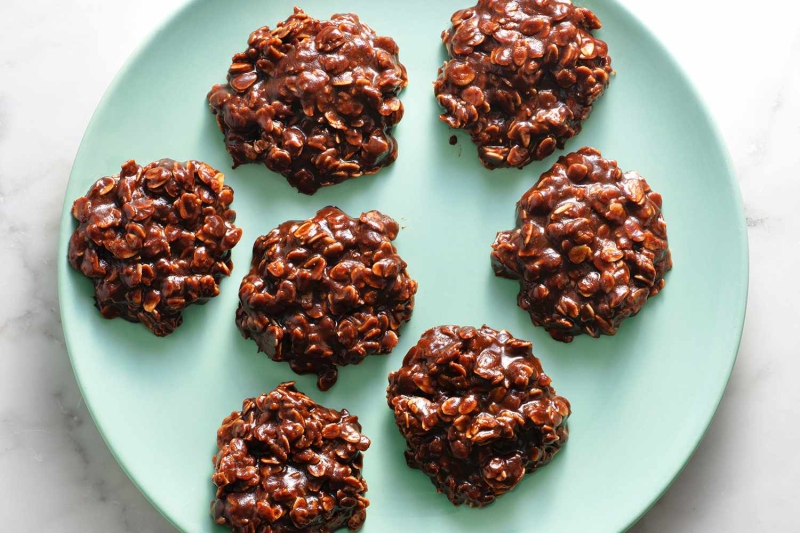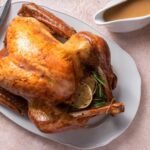Chocolate, peanut butter, oats, and deliciousness
Prep: 10 mins
Cook: 3 mins
Chill: 60 mins
Total: 73 mins
Servings: 8 servings
Yield: 24 cookies
When you feel like a cookie but can’t be bothered to turn the oven on, no-bake cookies offer a delicious alternative to the baked variety. They’re the perfect treat to whip up when you’re short on time and want a mostly hands-off preparation, with no oven to watch and no worries about burning.
No-bake cookies generally are made with peanut butter, chocolate chips, sugar, cocoa powder, and oats as the main ingredients. To make them sugar-free, we’ve opted for unsweetened peanut butter, sugar-free chocolate chips, and a granular all-purpose, cup-for-cup, natural sugar-free sweetener made from several non-caloric plants.
These cookies are chewy, chocolatey, and plenty sweet. The oats add texture, and the use of both chocolate chips and cocoa powder makes for a deeply rich flavor, while the peanut butter contributes to a rich, silky mouthfeel. Make these no-bake cookies for a quick snack or late-night treat.
«Great recipe to satisfy your sweet tooth without using the oven. And they’re sugar-free! The recipe comes together in no time and with the least effort. If you’d like to roll the cookies into balls, just let them cool down first—they’ll be way easier to roll.» —Tara Omidvar
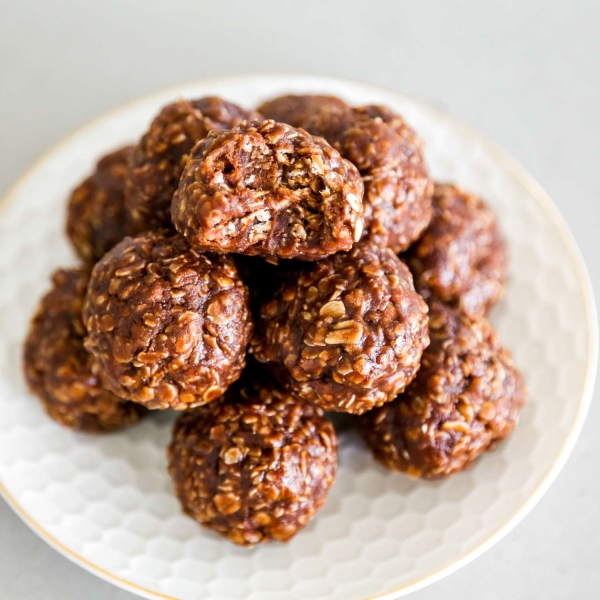
A Note From Our Recipe Tester
Ingredients
-
1/2 cup unsalted butter
-
1/2 cup milk
-
1 1/2 cups cup-for-cup keto sweetener
-
1/4 cup cocoa powder
-
1/4 cup sugar-free chocolate chips
-
2 1/2 cups rolled oats
-
3/4 cup unsweetened peanut butter
-
1 teaspoon vanilla extract
-
1/4 teaspoon kosher salt
Steps to Make It
-
Gather the ingredients.
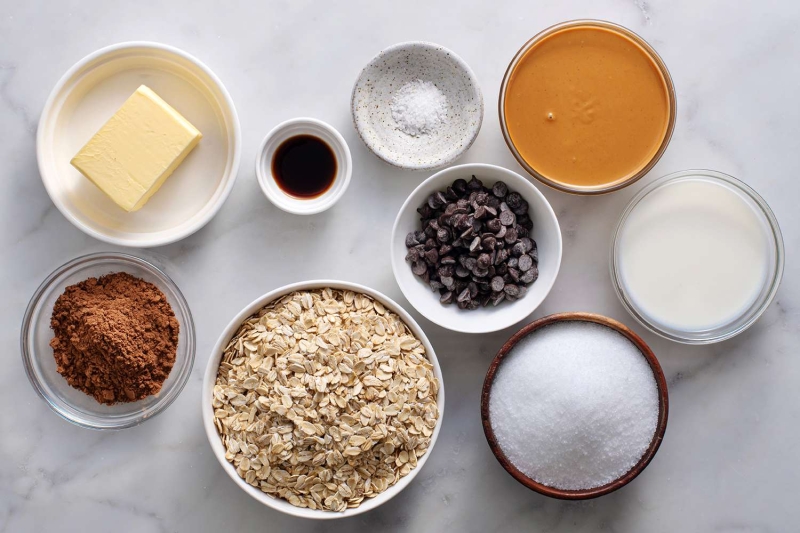
-
Add the butter, milk, sweetener, cocoa powder, and chocolate chips to a medium saucepan over medium heat. Bring to a boil, stirring frequently.
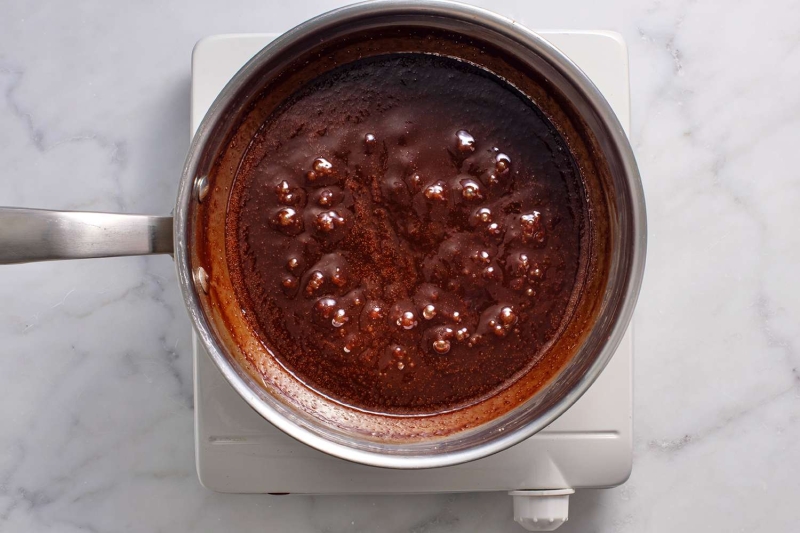
-
Once the mixture comes to a boil and the ingredients are thoroughly homogenized, remove from the heat.
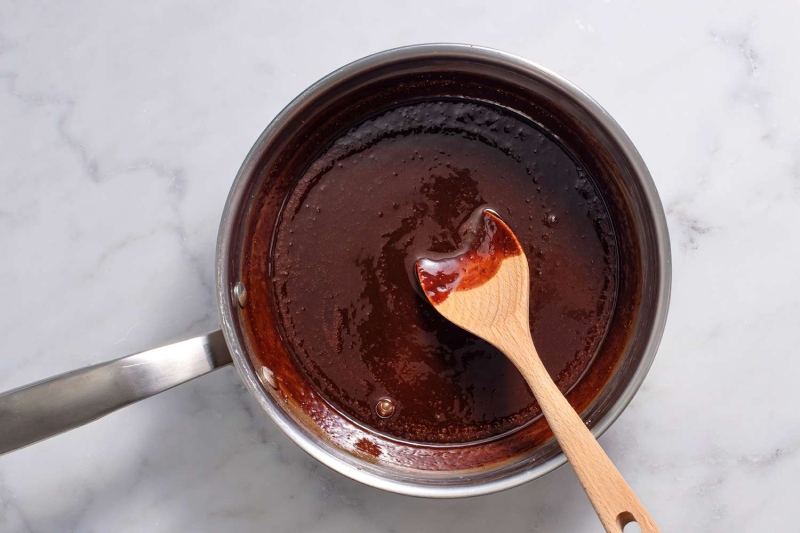
-
Add the oats, peanut butter, vanilla, and salt to the mixture; stir well to combine.
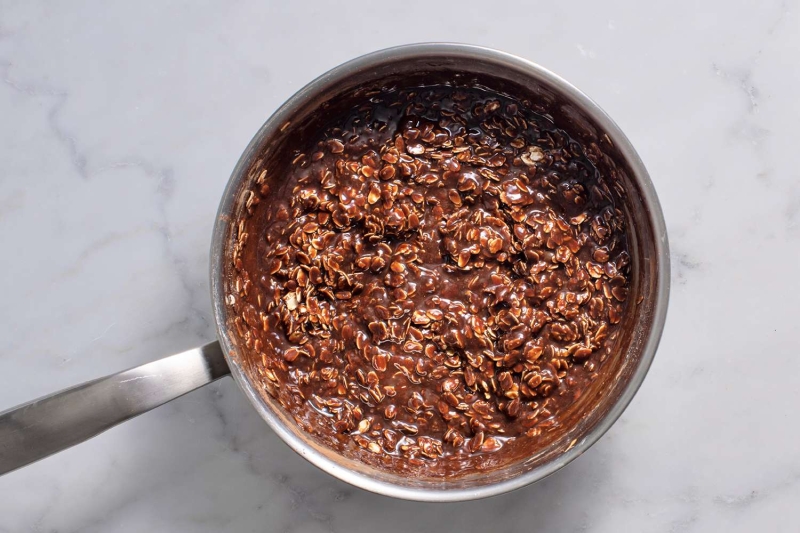
-
Drop heaping teaspoons of the mixture onto a parchment-lined baking sheet. (Alternatively, you can roll balls of the dough or use a cookie scooper to create cookie mounds.)
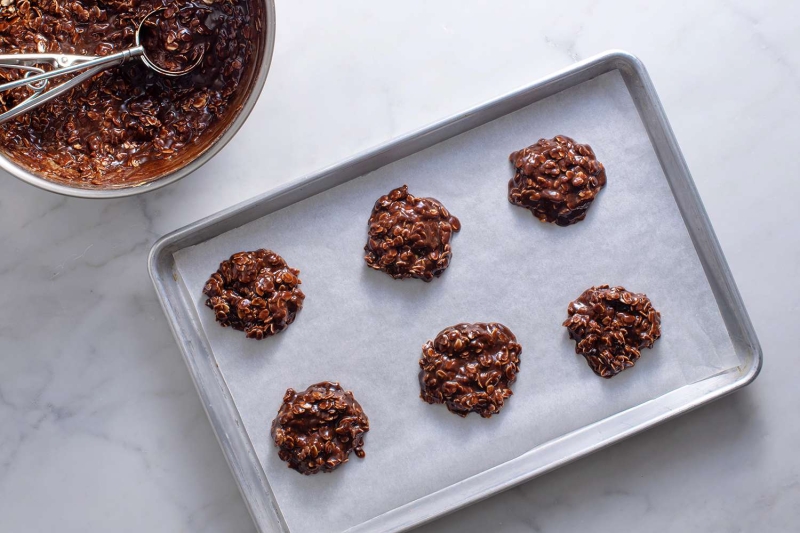
-
Place the sheet tray in the refrigerator. Let sit in the refrigerator for one hour, until firm, before enjoying.
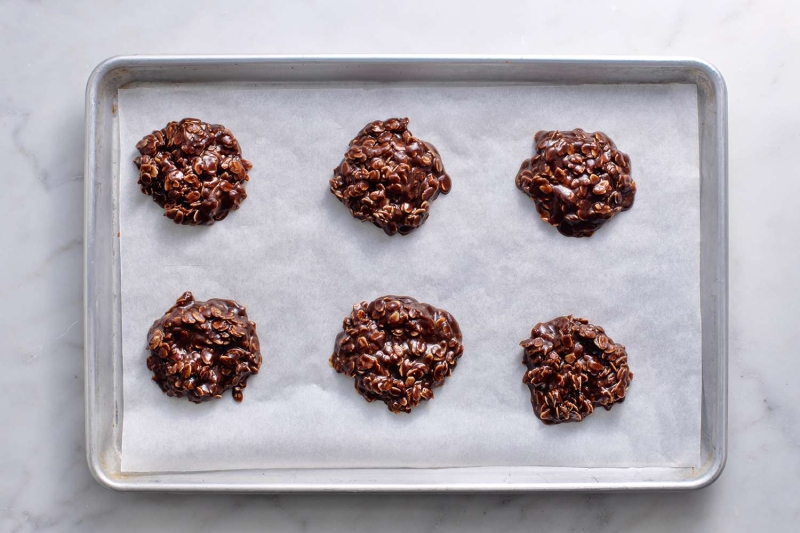
Recipe Tips
Choosing a Keto Sweetener
- A granulated cup-for-cup keto sweetener should be used for the best results in this recipe. Ideally, choose one that doesn't contain dextrose and uses multiple sweetener sources for the most neutral taste possible.
- A perfect example is All-Purpose In The Raw Optimal Sweetener Blend, which is what this recipe was developed with.
All About the Texture
- Rolled oats will yield a chewier cookie than instant or quick cooking oats.
- Quick-cooking oats will offer less texture, and the end product may be slightly softer.
- Sugar-free peanut butter is available by most natural makers of peanut butter. The ingredients should say peanuts, oil, and salt only.
Recipe Variations
- For a vegan version, use coconut oil or butter-flavored coconut oil instead of butter, and a non dairy milk. Be sure the non dairy milk is unsweetened, if you want the recipe to stay sugar-free.
- To make the recipe nut-free, use sunflower butter instead of peanut.
- For extra crunch, add 1/4 cup chopped nuts or 1/4 cup cacao nibs.
How To Store
These cookies should be stored in a tightly sealed container. While you may find them firm enough at room temperature, storage in the refrigerator ensures they don't become too soft. They can be kept for one week in the fridge, and can be stored for several months in the freezer in a zip-close freezer bag.
| Nutrition Facts | |
|---|---|
| Servings: 8 | |
| Amount per serving | |
| Calories | 409 |
| % Daily Value* | |
| Total Fat 28g | 37% |
| Saturated Fat 12g | 58% |
| Cholesterol 32mg | 11% |
| Sodium 254mg | 11% |
| Total Carbohydrate 31g | 11% |
| Dietary Fiber 5g | 18% |
| Total Sugars 6g | |
| Protein 10g | |
| Vitamin C 0mg | 0% |
| Calcium 48mg | 4% |
| Iron 4mg | 20% |
| Potassium 261mg | 6% |
| *The % Daily Value (DV) tells you how much a nutrient in a food serving contributes to a daily diet. 2,000 calories a day is used for general nutrition advice. | |
